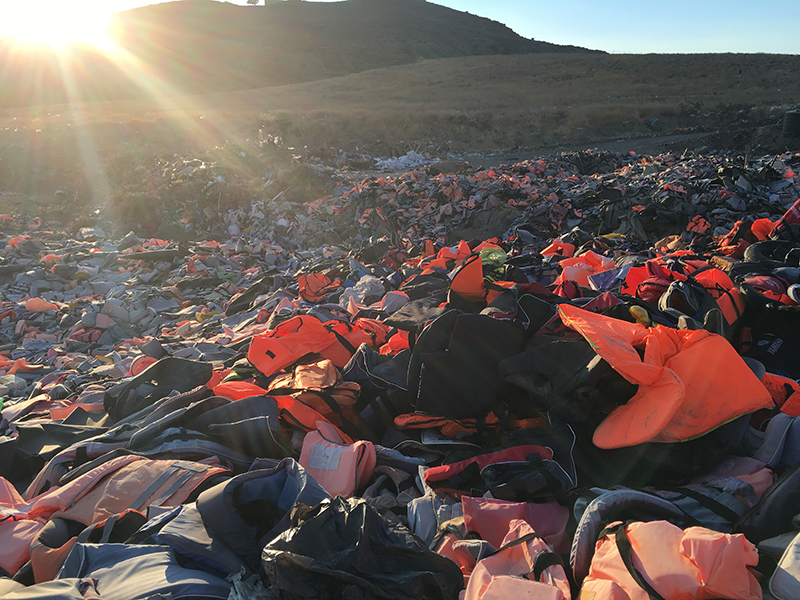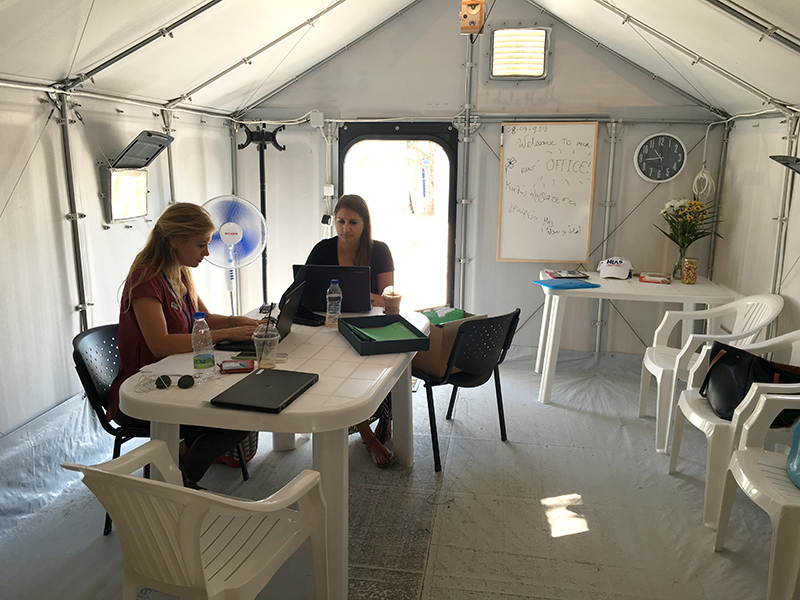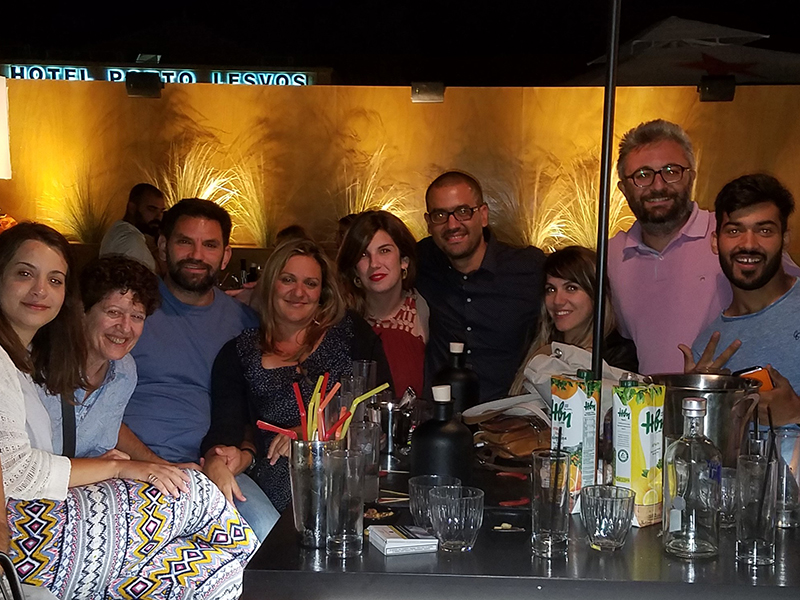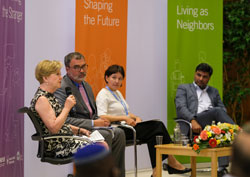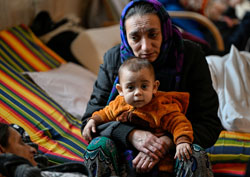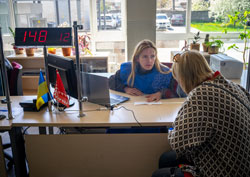Why One California Lawyer Returned to Greece to Help Refugees
By Gabe Cahn, HIAS.org
Oct 11, 2017
“I had never met a Syrian, Iraqi or Afghan person before,” said Paula Kasler, a northern California-based lawyer who owns her own practice counseling life science companies.
“It was really important to me that they not be just some generalized group of people about whom we hear in the news and we then learn to fear or discriminate against.”
In early 2016, when the American presidential campaign was beginning to foster negative stereotypes about Muslims and refugees from the Middle East, Kasler felt that Americans should be fighting against those inclinations because, in her words, “it was becoming increasingly hard to do so.”
Kasler traveled to the Greek island of Lesvos for the first time in the spring of 2016 as an independent volunteer. She hoped to assist refugees who were fleeing from Turkey in small boats before attempting to travel on to northern Europe. Her inspiration came from a friend who was there on the island with the Israeli aid organization IsraAID, volunteering in honor of her grandparents who had been refugees in World War II fleeing Nazi Germany.
Kasler arrived in Lesvos just as the EU-Turkey deal was going into effect and NGOs and independent volunteers alike were leaving the island in protest. The European Union countries had closed their borders to refugees, and those refugees who had made it to islands such as Lesvos were moved to the Greek mainland to be housed in refugee camps.
She looked for other ways to volunteer in Greece and found a refugee camp in northern Greece, near the city of Ioannina, that was in desperate need of volunteers. She found an apartment, bought a plane ticket, and within days, with a handful of other volunteers, was working at the Katsikas refugee camp. Her duties included activities such as helping refugees wash their clothes by hand each day.
It was at a time when there weren’t many American volunteers on the ground. As Kasler tells it, “when the refugees heard I was American, they were in disbelief and loved it so much.”
However, one of Kasler’s biggest frustrations while working at the camp was that she could not offer any of her professional legal help or advice to the refugees.
“It felt terrible to tell the refugees I met that I was a lawyer, see their faces light up with hope, and then have to explain I could be of no help because I was an American lawyer with no knowledge of laws pertaining to refugees or seeking asylum in the EU,” she explained.
“It inspired me to return to Greece and learn as much as I could about the legal system, so that I could be of some help.”
A year later, in July 2017, Kasler returned to Lesvos where, with the help of another volunteer she had met who happened to be a former HIAS employee, she was able to put her legal skills to use volunteering directly with the HIAS Greece team.
Her main responsibilities involved assisting the Greek lawyers working for HIAS to generate “country of origin information,” which are reports needed to help support asylum claims in Greece. For example, if a client told HIAS that he was formerly a teacher in Afghanistan and had been targeted by the Taliban for teaching girls, HIAS would then have to find reliable, published materials substantiating his claim, thereby bolstering his chances for being granted asylum.
Kasler was also able to stay in touch with many of the refugees she had met in Greece in 2016, most of whom had since been relocated to other countries in the EU—something she wishes was possible for more of the refugee and asylum seeking population living in Greece.
But for those living on Lesvos, the best option is to win asylum in Greece, and HIAS Greece has been very successful with respect to the people with asylum claims whom they represent.
Beyond the direct impact Kasler had volunteering alongside HIAS Greece staff to protect the legal rights of refugees and asylum seekers, she says it’s also about the first-hand awareness of the global refugee crisis she was able to bring back home.
“When you do something like that and you come home and Americans start talking about this population of people, you have lot of credibility when you can say, ‘I was there and I can tell you what these people are like, and what they’re running away from,'” she told HIAS.org.
“It makes a huge difference.”
To stay up to date on HIAS’ work protecting refugees in Greece and around the world, follow us on Facebook and Twitter, and sign up for email updates.
